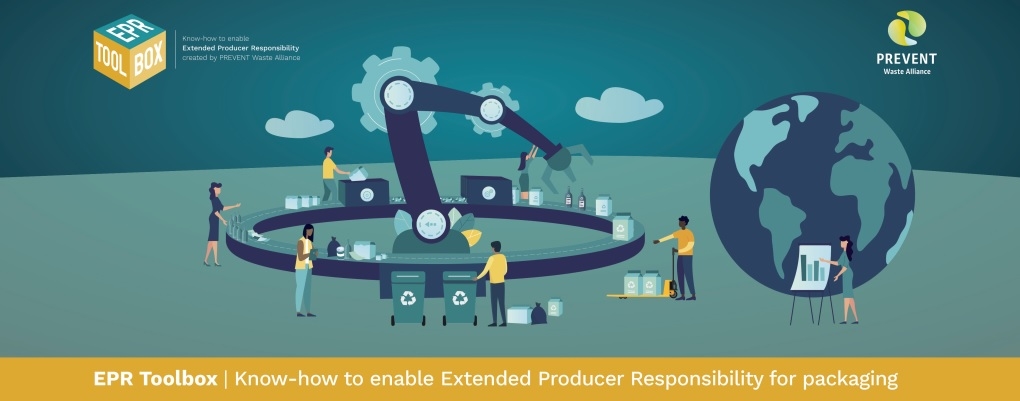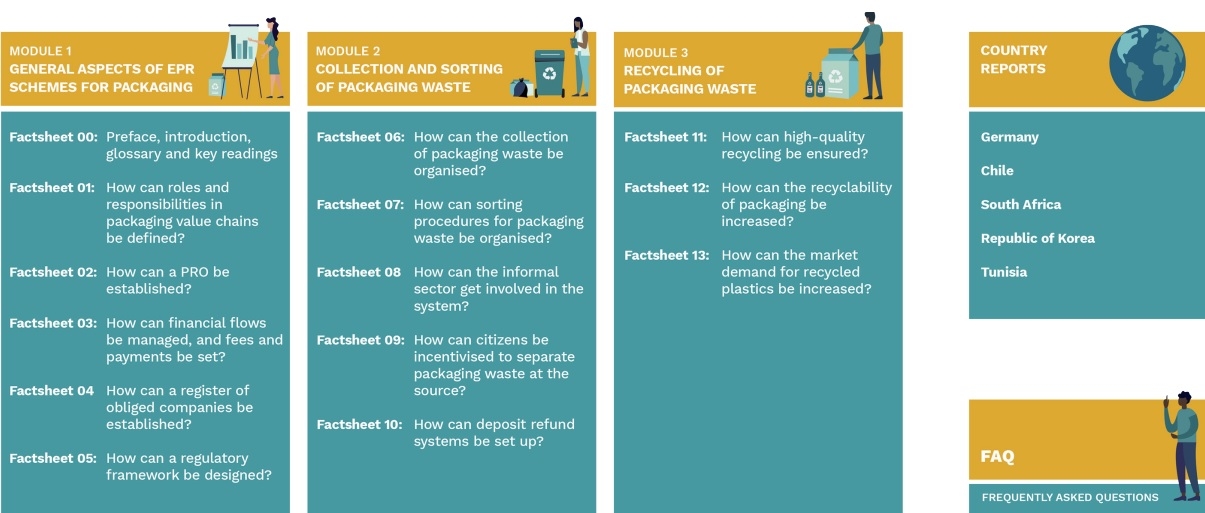Bringing tried-and-tested EU know-how to bear in Vietnam
The Rethinking Plastics Project spans seven countries in Southeast and East Asia with major funding from the EU. How does this project align with the EU’s policies on plastics reduction?
Rui Ludovino, first counsellor of Climate Action, Environment, Employment, and Social Policies at the Delegation of the EU to Vietnam"> |
| Rui Ludovino, first counsellor of Climate Action, Environment, Employment, and Social Policies at the Delegation of the EU to Vietnam |
The EU is investing a lot in implementing a resource-efficient, circular, and low-carbon future. The circular economy approach emphasises preventing and reducing waste and reusing and recycling materials and products to extract maximum value and use from all raw materials, products, and waste, leading to energy and financial savings.
The European Strategy on Plastics in the Circular Economy, launched in January 2018, is an essential element of the EU Circular Economy Package. The strategy builds on already existing measures to reduce plastic waste and aims to transform the way plastic products are designed, produced, used, and recycled in the EU.
As plastics pollution knows no borders, the strategy has identified international cooperation as one of its main working axes and we are working with partners from around the world to come up with global solutions and develop international standards. A global transition is needed to progress toward the future envisaged by the 2030 Agenda and the Paris Agreement as well as to meet the United Nations Sustainable Development Goals.
East and Southeast Asia are major hotspots for plastic waste leakage into the ocean, with about half of global plastics produced in Asia. Most plastics are washed into the ocean by rivers and 90 per cent of it comes from just 10 rivers, eight of which are in Asia and two in Africa. Therefore, meaningful cooperation and action with Asian countries on the fight against plastics pollution is essential.
What do the EU’s internal actions on combating plastic waste consist of?
The EU’s Waste Framework Directive 2008 outlines a five-step “waste hierarchy” that sets an order or preference for managing and disposing waste – prevention, preparing for re-use, recycling, recovery and disposal in descending order.
The EU plastics strategy also focuses on other important tasks. First is making recycling profitable for business. New rules on packaging will improve the recyclability of plastics and increase demand for recycled plastic content. This will require new and improved recycling facilities, alongside a better standardised system for the separation and sorting of waste across the EU. This will save €100 ($120) per tonne collected and deliver greater added value for a more competitive, resilient plastics industry.
The second action is to curb plastic waste. As legislation has already led to a significant reduction in the use of plastic bags in several member states, new actions will focus on other single-use plastics and fishing gear, supporting national awareness campaigns, and determining the scope of new EU-wide rules based on evidence and stakeholder consultation. Measures are also taken to restrict microplastics and fix labels for biodegradable and compostable plastics.
The third action focuses on stopping littering at sea, based on new rules on port reception facilities to tackle sea-based marine litter with measures to ensure that waste generated on ships or gathered at sea is not left behind but returned to land and adequately managed there.
The fourth action will drive investment and innovation: the EU is guiding national authorities and businesses on minimising plastic waste at source. Support for innovation is scaled up, with an additional €100 million ($121 million) financing the development of smarter and more recyclable plastics materials, making recycling processes more efficient, and tracing and removing hazardous substances and contaminants from recycled plastics.
What line of actions are you following regarding ocean pollution in the Rethinking Plastics Project?
In line with the plastics strategy and the national plans of Vietnam, our engagement is along three lines: sustainable production and consumption to reduce the amount of plastics put on the market, improving plastic waste management to make sure that waste is properly treated and does not end up in the environment, and reducing litter from sea-based sources, such as waste from ships.
For example, we focus on reducing single-use plastics and work jointly with the Ministry of Natural Resources and Environment to support the way to an Extended Producer Responsibility (EPR) scheme in Vietnam. EPR is based on the principle that whoever introduces packaging or packaged goods into a country’s market remains responsible for it until the end of the packaging life cycle, including the time after disposal.
These activities are accompanied by dialogues to exchange knowledge and experiences in the region and from Europe as well as awareness raising activities.
Overall, reducing plastics in the environment needs to be a joint effort. This is why we engage a variety of international and national stakeholders ranging from our political partners, the academia and research community to businesses and other organisations.
Do you think Vietnam is ready to establish a circular economy for plastics?
Today, Vietnam is one of the most successful emerging markets, with economic growth of 6-7 per cent and substantial export activities.
Rapidly increasing production means increased consumption of resources, especially energy – even as there is a worldwide need to find alternatives sources of raw materials of the same quality but at a lower cost.
A key new alternative is waste. With waste management in Vietnam expected to dramatically improve in the years to come, the massive amounts of waste produced in the country will represent an immense economic opportunity. There is a clear business case here which signals an interest in private investment and technology transfer.
For this to gain traction, the government is creating a more enabling environment, with the new Law on Environmental Protection.
 |
 |
| The “Rethinking Plastics – Circular Economy Solutions to Marine Litter” project supports the Ministry of Natural Resources and Environment of Vietnam in developing a legal framework on Extended Producer Responsibility (EPR). Institutional and operational actors, among them public authorities, producers, collectors, operators, and recyclers can now enhance their knowledge about EPR for packaging with the new EPR Toolbox in Vietnamese. EPR is a key concept for closing the loop in the packaging value chain in line with circular economy principles. It is based on the principle that whoever introduces packaging or packaged goods into a country’s market remains responsible for it until the end of the packaging life cycle, including after disposal. The EPR Toolbox aims to facilitate knowledge exchange and enhance the development of EPR systems worldwide. It contains detailed training materials on EPR, practical country examples, and a set of FAQs. The Vietnamese translation of the EPR Toolbox, which was developed by the PREVENT Waste Alliance, is provided by the Rethinking Plastics project, funded by the European Union and the German Federal Ministry for Economic Cooperation and Development, and implemented by GIZ and Expertise France. Website: https://beatplasticpollution.eu/rethinking-plastics/ Contact: Fanny Quertamp, senior advisor Vietnam; fanny.quertamp@expertisefrance.fr |
What the stars mean:
★ Poor ★ ★ Promising ★★★ Good ★★★★ Very good ★★★★★ Exceptional
Related Contents
Latest News
More News
- Keppel Land raise plastic waste awareness (July 09, 2022 | 13:45)
- 3Vs for gender-inclusive circular era (July 01, 2022 | 14:33)
- Alliances formed in mission to alter behaviours (July 01, 2022 | 14:19)
- Plastic use drop hinges on consumers (July 01, 2022 | 14:03)
- Mainstreaming circular plastic plans (July 01, 2022 | 13:18)
- Applying popular new methods to combat single-use plastic habit (July 01, 2022 | 10:00)
- Retailers endeavor to promote sustainable consumption patterns (June 24, 2022 | 14:46)
- BAEMIN extends green journey in Vietnam (June 23, 2022 | 14:51)
- Closing event of Rethinking Plastics heralds new age of combatting plastic pollution (June 23, 2022 | 11:53)
- Talkshow Innovative Solutions & Substitutes for Single-use Plastic towards Green Consumption (June 22, 2022 | 20:46)

 Tag:
Tag:



















 Mobile Version
Mobile Version